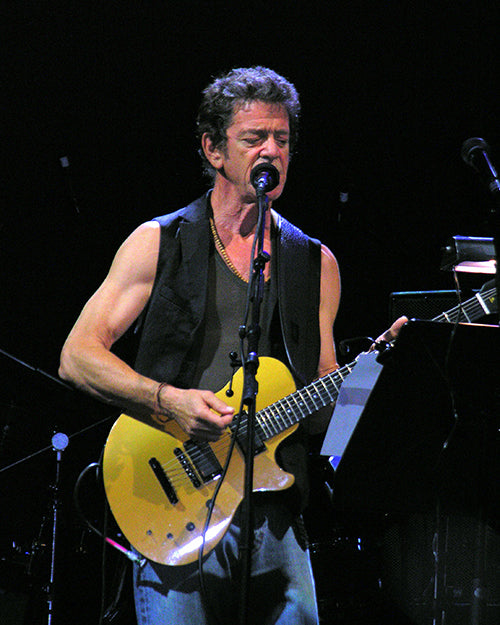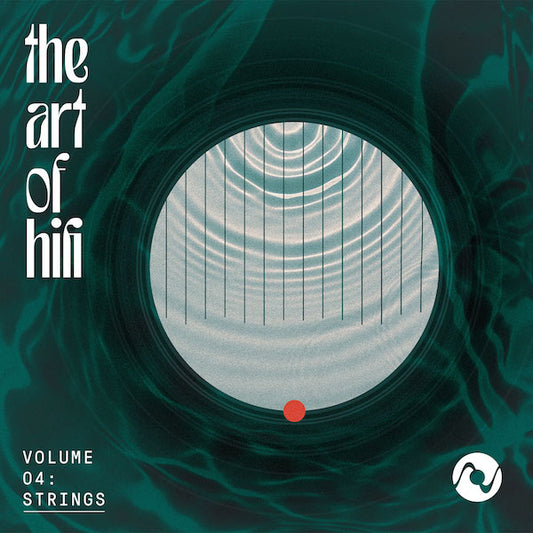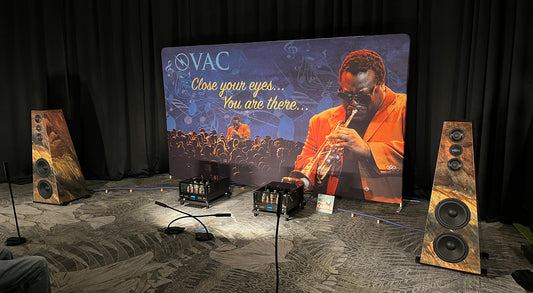Lou Reed was a poet. Like Leonard Cohen, Reed just happened to sing his poetry. There was nothing conventionally beautiful about his voice, but it was the ideal vehicle to carry his insightful observations and stories about his own life and the world around him.
The Brooklyn native was born in 1942 to parents of Russian Jewish heritage. They didn’t want their son to be a musician, a fact that did nothing to help his naturally anxious nature. He was given to panic attacks and started experimenting with drugs while in his teens. But music called to him. The doo-wop group he sang with in high school won a contest that let them cut a single. After that, music-making became the permanent center of his life.
He played in several bands in college at Syracuse University, always writing his own songs. After college, having moved to New York City, he got what today would seem like a dream job to a budding composer: in-house songwriter for Pickwick Records. That’s where he met John Cale, one of the most important colleagues and friends in his life.
In a future column, I’ll write about Reed’s hugely influential band, The Velvet Underground. It’s enough of a task to cover his 20-album, 30-year solo career. Suffice it to say that Reed and Cale co-founded the group, and Reed stuck around until 1970. Those were heady days, hanging out at Andy Warhol’s Factory in New York. Warhol used to press Reed to write several songs per day.
No wonder, then, that Reed was ready with material when it came time to make his first solo album. Having signed with RCA, he recorded solo versions of some songs he’d written for the Velvet Underground and tapped Yes members Steve Howe (guitar) and Rick Wakeman (keyboards) to play on the sessions.
Lou Reed, released in 1972, did not get much attention, but it makes for a bare and spare introduction to Reed as a solo performer. Consider “Lisa Says,” with its conversational lyric style (a big reason why Reed was compared to Dylan by contemporary critics) and rough-and-tumble arrangement drawing from country, rock, and even gospel. And then it changes melody, meter, and style to give a nod to the British music hall tradition, particularly its tongue-in-cheek humor.
Reed’s reputation skyrocketed with his second solo album, Transformer, also from 1972. Crucially, using David Bowie and Mick Ronson as producers opened up the British market to his music. The album’s big single (the most successful of Reed’s career) was the exploration of sexuality and gender identity, “Walk on the Wild Side,” backed with the romantic yet haunting “Perfect Day.” Now he was using the trappings of glam rock and the rebellious attitude of punk.
The song “Vicious” was the B-side to “Satellite of Love.” With darkly funny imagery, Reed complains about someone he’d rather not have in his life. He claimed that the first line, “You hit me with a flower,” was given to him as a songwriting challenge by Warhol.
Reed’s life was intense and nearly off the rails, as can be heard on the daring Berlin (1973). Its songs deal with drug use, violence, suicide, and the general madness of existence. At the time, critics were baffled by this concept album, but now it’s considered a masterwork of soul-baring in song.
The album’s story revolves around a couple, both drug addicts living in Berlin. We get to know a little about the female character, perhaps based on Reed’s wife at the time, in a vignette called “Lady Day,” which describes her being magnetically pulled into a bar to sing when she hears music.
New albums kept coming, with two in 1974, both co-produced by Reed and Blood Sweat & Tears guitarist Steve Katz: Rock ‘n’ Roll Animal, featuring the moving single “Sweet Jane,” and Reed’s best-selling record, Sally Can’t Dance. The following year, he tried his hand at solo production (with engineering/mixing by Bob Ludwig) on Metal Machine Music, which contains electronic atmospherics and sound experiments rather than songs.
Coney Island Baby, which also came out in 1975, was inspired both by Reed’s native Brooklyn and his then-current girlfriend, Rachel Humphreys. “Kicks” is a devilishly light-hearted exploration of a killer’s psyche. Or is it about the cutthroat nature of show business?
When Arista Records’ Clive Davis signed Reed, he was serious about letting the artist be himself in vinyl. Davis encouraged Reed to include an 11-minute extended version of the title song on Street Hassle (1978). Bruce Springsteen was happy to let Reed use the line “Tramps like us, we were born to pay,” even though it was nearly the same as a line from “Born to Run.” In fact, Springsteen came into the studio and spoke the line on Reed’s track, which is a three-part suite.
One of Reed’s strengths was his ability to attract interesting musicians to work with. For The Bells in 1979, he utilized the talents of Don Cherry, a jazz trumpeter, and Chuck Hammer, known for his “textural guitar” using a layering technique he called Guitarchitecture. “Stupid Man,” from that album, has a frenetically jagged melody reminiscent of Bowie.
Reed continued putting out albums almost annually in the 1980s. With New Sensations in 1985 he had partially reclaimed the fame that “Walk on the Wild Side” had brought him in the 1970s. By the end of the decade, he had written a series of songs that updated the perspective of that famous single for the age of AIDS. New York, released in 1989, is like a sung diorama of the Big Apple at that time, in all its grunge and glory. It was a commercial success, giving Reed his first No. 1 hit with “Dirty Blvd.”
In “Romeo Had Juliette” he sings, “Manhattan’s sinking like a rock/into the filthy Hudson, what a shock,” but he leaves no doubt how deeply he loves his hometown, even when it’s suffering.
After Andy Warhol died in 1987, Reed reunited with John Cale for the first time in over a decade. Their tribute to their friend and mentor, Songs for Drella, came out in 1990. The death of two more close friends inspired the songs on one of Reed’s best albums from the second half of his career, Magic and Loss (1992). Its big single was “What’s Good – The Thesis,” another chart-topper. Guitarist Mike Rathke made a major contribution to this album, both with his gentle playing and his co-authoring of several songs.
One of the most interesting tracks is “Sword of Damocles – Externally,” especially for its rich instrumentation. The lyrics, in contrast, are blatant and uncomplicated, full of anger at the inexorable progress of death by cancer (a very different use of the Damocles imagery from Rufus Wainwright’s song of the same name).
Although his output slowed from its earlier frantic pace, Reed continued to make albums into the 21st century. The final one was Lulu, a collaboration with the band Metallica. It was released in 2011, two years before Reed’s death from liver disease at the age of 71. It’s impossible to overstate the inspiration he provided to three generations of songwriters – and poets – who refuse to fit into any mold or abide by public expectation.
Header image courtesy of Wikimedia Commons/annulla.



